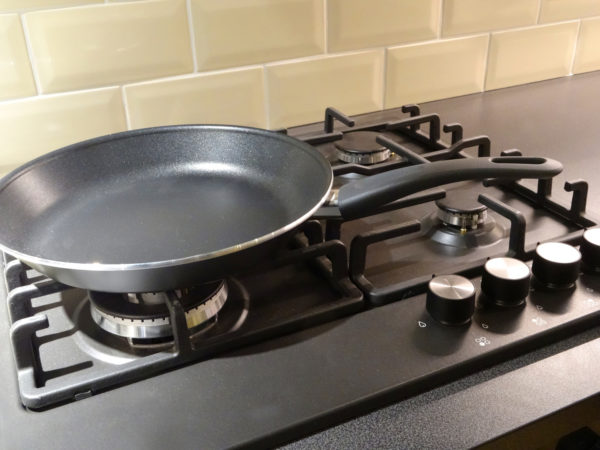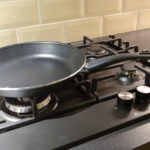Are Nonstick Ceramic Pans Better?
What is your opinion of the new eco-pans that have a nonstick coating made from ceramic? Are they safer than traditional nonstick pans or are they just a marketing gimmick?
Andrew Weil, M.D. | January 18, 2011

I like the new ceramic-coated pans. I think they’re a great advance over earlier nonstick pans and bakeware and are safer because they’re made without perfluorooctanoic acid, known as PFOA, the potentially toxic chemical used in the manufacture of coatings for nonstick pans such as Teflon. The nonstick surface of the new green pans uses ceramic-based nanotechnology that is said – unlike older nonstick coatings – to be stable on exposure to high heat and resistant to flaking.
As you probably know, Teflon appears to be inert and safe unless heated to high temperatures. Then, it emits fumes toxic enough to poison birds. (Birds are more sensitive to these fumes than humans and other mammals, and birds kept in cages near kitchens have apparently not done so well when Teflon coated pans have been overheated.) The exact temperature at which this occurs is not clear. The manufacturer, DuPont, has long acknowledged that heating Teflon cookware to temperatures as low as 464 degrees Fahrenheit is harmful to birds but has said that the fumes aren’t a problem for humans because most consumers don’t exceed that temperature when cooking.
I find nonstick skillets very convenient, but I use them for controlled-temperature sautéing (i.e., with some liquid in the pan) and never let them get too hot. I’ve recently retired my Teflon-coated cookware in favor of the new ceramic-coated products. But I principally use stainless-steel cookware – it requires a bit more effort to clean, but is durable, gives excellent cooking results and is completely nontoxic.
I’ve read some consumer complaints about the new green pans – that after several uses food begins to stick and that they become hard to clean and don’t live up to the claims made for them. I haven’t experienced any problems so far. If I do, I’ll let you know.
Andrew Weil, M.D.










